Chasing the Dream
Words & Images by Sam Mossman
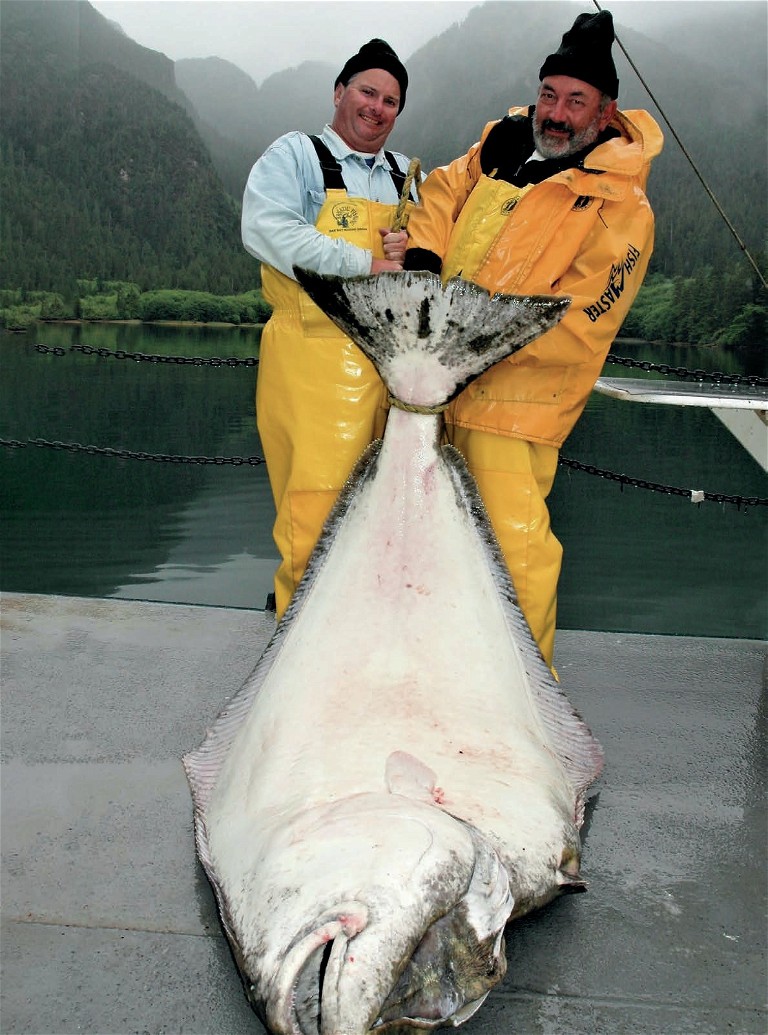
Don’t expect record fish, but sometimes you are fortunate. Rick Wakelin (right) caught this 280lb halibut, the heaviest landed on Canada’s Pacific coast that year.
New Zealand has some of the world’s best fishing and there are still fresh surprises being discovered from time to time. For example, going back four decades, no one knew much about Three Kings marlin, or our broadbill fishery, or marlin off the North Island’s West Coast, or the giant Pacific bluefin tuna off Westland, or the Bay of Plenty’s winter southern bluefin run. Now these are all established and well-known fisheries.
But our home waters are just a small part of this watery, fishy planet. As a young bloke, when I wasn’t out fishing or working on my fishing gear or boat, I was reading books and fishing magazines. This developed the burning desire to catch a list of exotic sportfish I had read about. It was a long list, so 40 years ago I made a start on whittling away at it. These days it is called a ‘bucket list’.
I am now into my fourth passport and have fished in over 20 countries and states, some of them many times, in pursuit of a slew of exciting sportfish. I would probably be a lot better off financially if I had saved and invested the money that I spent on travel over the years, but I would not have had all the wonderful experiences and made the memories that I now treasure. On balance, I can fully recommend travel fishing as a way of using your allotted time in this world.
There are two ways to approach an enterprise like this: there may be a particular species of fish you hanker after, and the best place to find it dictates where you go. For example, want to catch a giant tarpon? A well-known hot spot is the Florida Keys. A big barramundi? Try the Northern Territory.
The other approach is: if there is a country you want to visit, find out what the iconic sportfish for the region is and factor in a spell of fishing along with the other tourist stuff. Going to Egypt to see the pyramids and temples? Have a crack at catching a big Nile perch in Lake Nasser while you are there. Visiting Brazil? Have a go at the Amazon’s peacock bass while in the country.

Going to Egypt to see the antiquities? See if you can have a crack at the Nile perch in Lake Nasser.
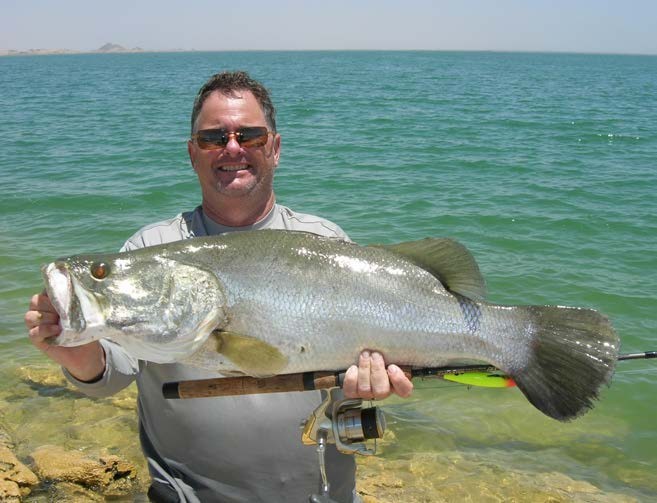
Achieving the dream
The key to avoiding hassles, having a good time, and catching the target fish is this: do your research first. This used to entail writing lots of letters, ploughing through magazines and books, and making expensive overseas toll calls. Faxes (remember them?), when they arrived, were a godsend. But these days the internet and email have simplified things considerably. Everyone has a website, there are reviews to refer to, and in general, pioneering trails have become beaten paths. All the better for today’s anglers!
If you are looking to catch a specific species of fish there are a couple of main questions to answer: where is the best place for them, and when is the best time? Let’s use an example: if you decide that your life will not be complete without catching a 1,000lb marlin, then statistically the Great Barrier Reef in North Queensland has produced more ‘granders’ than any other region. But timing is critical. The ‘heavy tackle’ season, when the big blacks gather along the Barrier Reef to spawn, runs from September to the end of November. For a good chance to hit the season’s ‘sweet spot’, you are best to fish in October or the beginning of November in case the seasonal run starts a bit late or shuts down early. As a further refinement, there is research that shows the best marlin bite off the Barrier Reef takes place on the quarters of the lunar cycle. So now you know exactly when you have the best chance of achieving your dream.
The next, very important thing is to find a good guide/charter boat/fishing operation. You may be an exceptional angler but if trying to catch a new species in a new area in a limited time, you are going to need help. Local operators will have the knowledge you don’t, and often specialist tackle as well as equipment like the all-important boats and vehicles. They may have sorted access to private property and know the seasonal movements of different species and how best to catch them. The best-performing operators will have a ‘reputation’ and you can confirm their expertise by looking at reviews or recommendations from people who have fished with them. The best operators will be popular and busy, especially in peak season, so be sure to book early – even a year in advance is not too much.
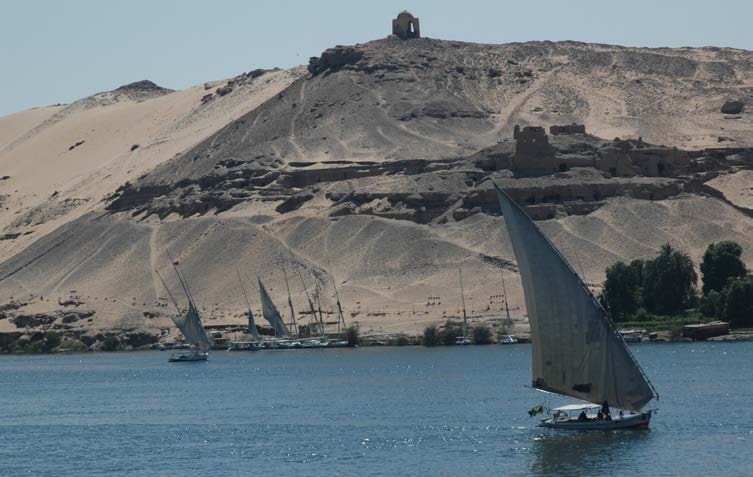
Feluccas sail the Nile River, the banks studded with ancient ruins.
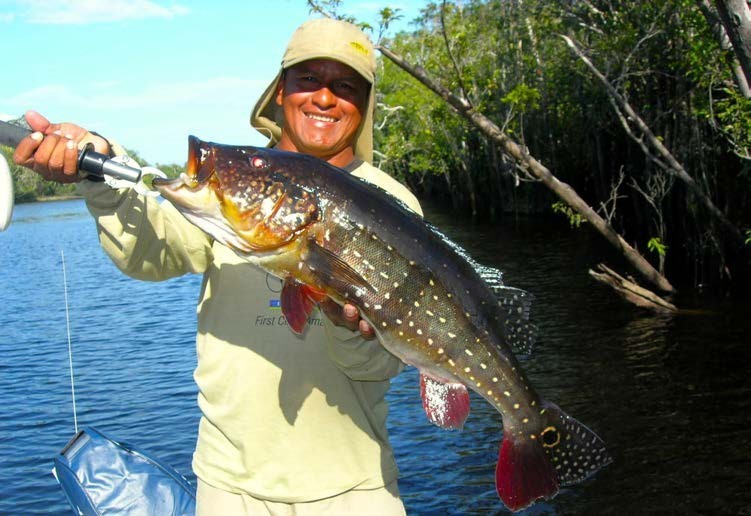
The peacock bass is an iconic fish of the Amazon system.
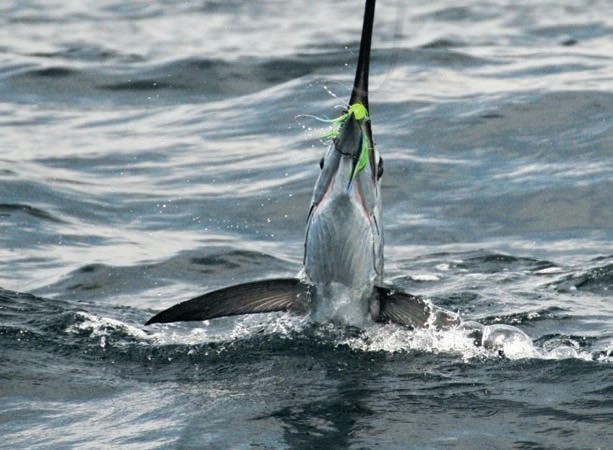
If you have a special fishing ambition, such as a sailfish on fly, go where you are going to get ‘lots of shots’, in this case Kuala Rompin in Malaysia.
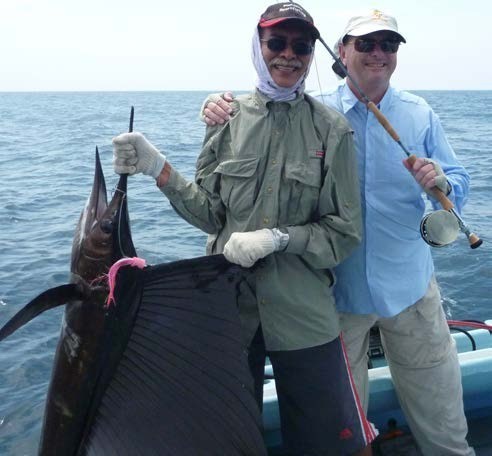
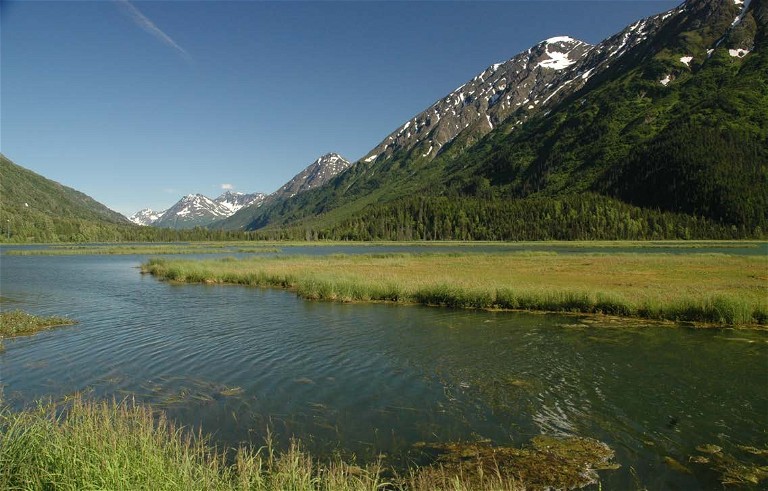
Alaska boasts some fantastic scenery.
Research the gear and techniques required for your dream fish. It is nice to use your own gear, but international travel is a lot easier (and cheaper) without lugging it along, especially gamefishing gear. Consider using the guide’s gear, if they supply it and it is good quality.
You may wish to find a good travel agent to organise your flights, accommodation, transfers, etc. This can save you a lot of drama. Pre-Covid, the services of travel agents did not involve any cost to the traveller. The agent got their cut from commissions from airlines, hotels, etc., but I notice that as travel opens back up after Covid, more travel agencies are charging ‘service fees’, ‘consultation fees’, ‘ticketing fees’, or whatever you want to call them. Possibly a reflection of the increasing ability of passengers to book their own tickets online.
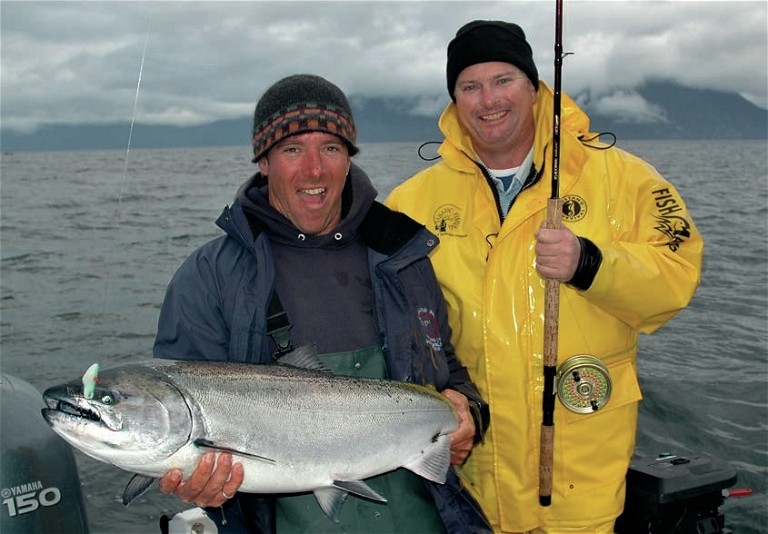
A good guide can teach you a lot. Canadian Andy Doig (left) was well versed in trolling rigged herrings on downriggers and ‘mooching’ gear for king salmon.
Set an achievable target
When fishing for a new species, don’t expect to catch a record specimen the first time you try. Set yourself a target you can realistically achieve. This may be a representative-sized specimen of whatever you are chasing. Ten old-fashioned pounds is a common benchmark for smaller sportfish species such as peacock bass, barramundi and tigerfish – a decent-sized specimen but common enough that you have a fair chance of catching one during a few fishing days. In Kiwi terms, think a tenpound snapper or a 30-pound kingfish.
Another approach to such a quest is the technique used. Maybe you want to catch a certain species a particular way – say, a sailfish on a fly, or a GT on a popper, or whatever. If this is the case, be sure to tell your guide or skipper before you book them and be sure they have expertise in that technique.
Allow yourself as much time as you can fit in/afford to achieve your fishing goal. It may take a little while to get a feel for a particular technique or species. You may need to sharpen up your casting accuracy, or weather or water conditions may intervene for part of the trip, and sometimes you just have to put the hours in to catch a certain fish. You don’t always win but keep trying, and don’t throw in the towel. I can think of plenty of occasions when I have finally caught my target fish on my last fishing day, sometimes in the last hour of fishing.
It also pays to have a plan B. For example, I once went to Florida with the plan of catching a tarpon. I really wanted to do it with a fly, but I knew it was not going to be easy. So on my first evening I put in a backstop: my guide and I went out fishing with livebait and I caught and released a 100lb tarpon. It was a good thing I did because several more days of hardcore flyfishing, casting to literally hundreds of fish, produced only a couple of tentative bites and no hookups. The fish had lockjaw and even my talented guide could not catch them.
In recent times I spend as much, or more, time being a tourist as a fisherman. In Africa we spent half our days game viewing in the national parks. It used to be that the fishing was the main reason for the trip but sometimes now the fish are just a by-blow. For example, I spent a month in the UK but only five days were spent fishing – for sea bass, pike and Atlantic salmon.
There is a truism that goes ‘an adventure is just a badly planned expedition’. Adventures sound exciting and make good war stories, but trust me on this, avoid them as much as possible. Fishing in remote places will generate as much excitement as you need. Over the years I have had to wade and swim through croc-, caiman-, and piranhainfested waters, been chased by an angry elephant, had close encounters with bears and snakes, and narrowly missed a leopard, a military coup, a tribal war and the Arab Spring insurrection. So far, so good!
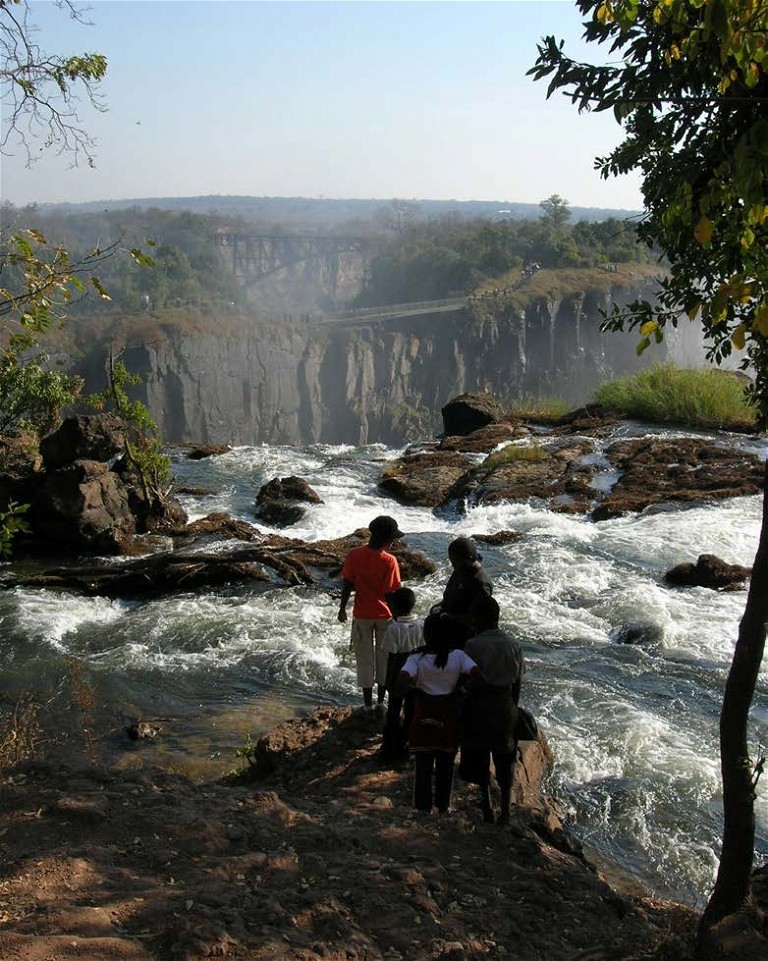
You have to see the sights. A bunch of locals at the top of Victoria Falls in Zambia. Not a good place to go for a paddle.
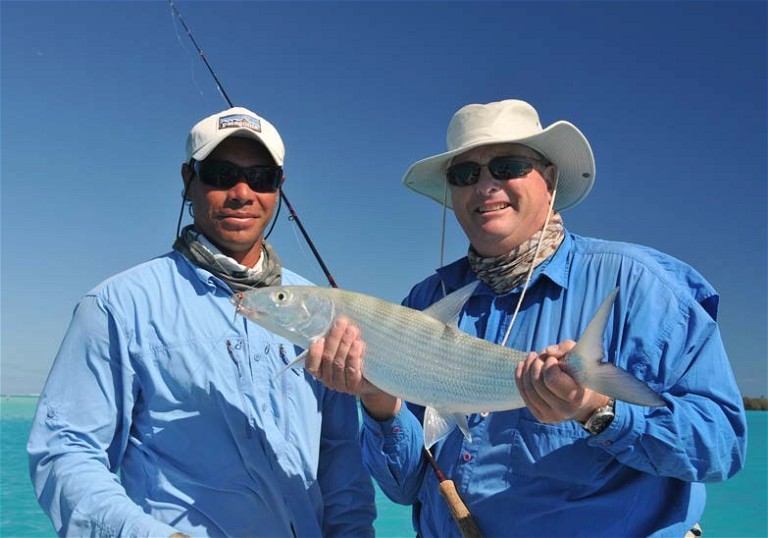
A good guide is worth their weight in gold, and they don’t come much better than Aitutaki bonefish guide Etu Davey.
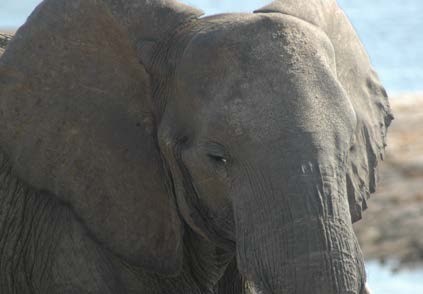
1) An elephant gives Sam the ‘hairy eyeball’ in Africa’s Chobe National Park.
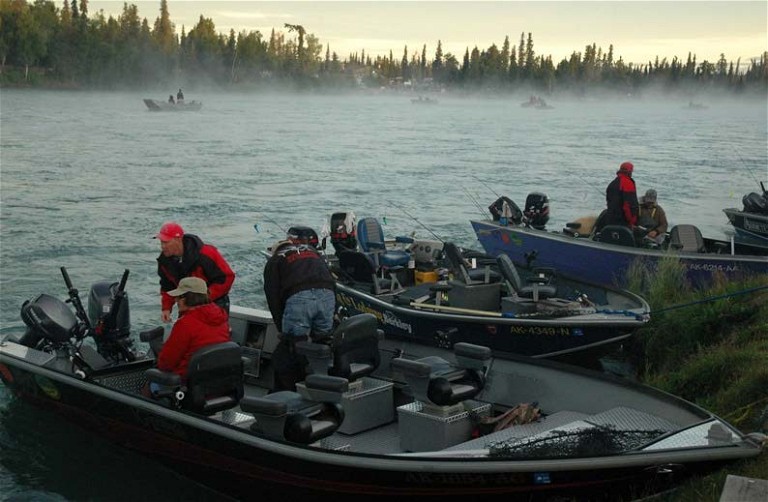
2) Alaska’s Kenai River. Local operators will have the knowledge you don’t, and often specialist equipment, boats and vehicles.
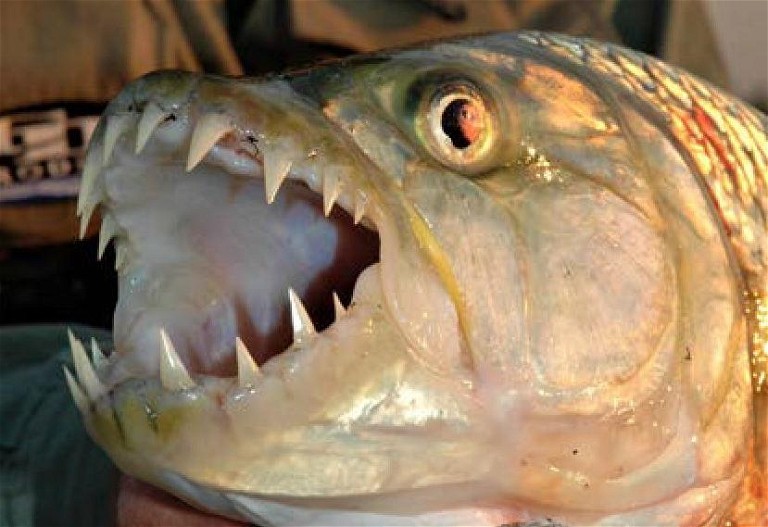
3) Zambezi River tigerfish are a challenging species, especially on lures.
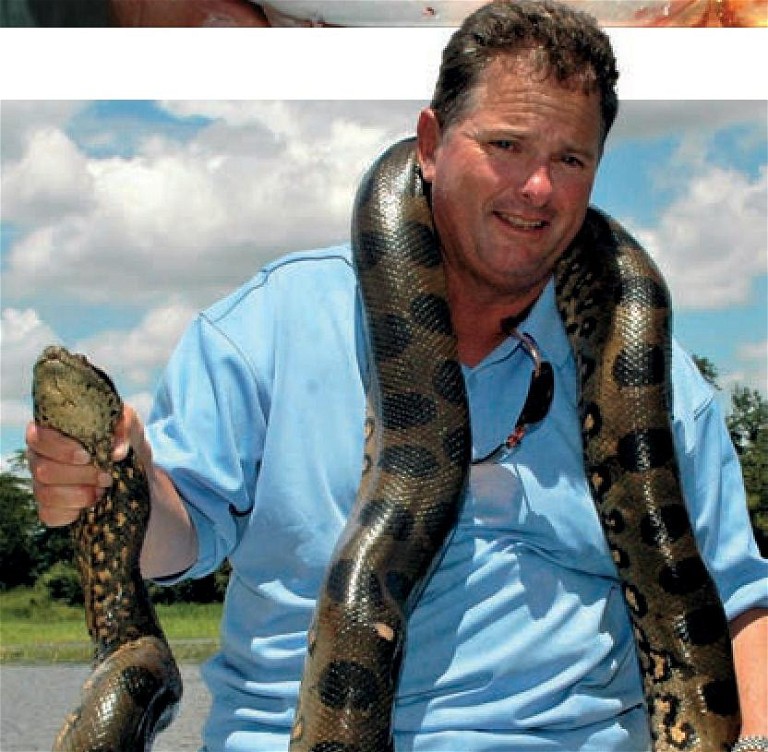
4) So far, so good! Sam meets an Amazon River anaconda.
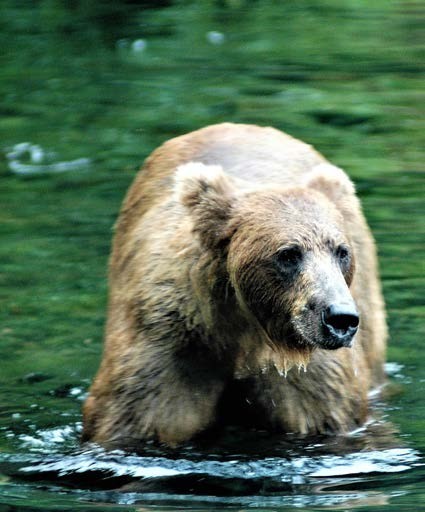
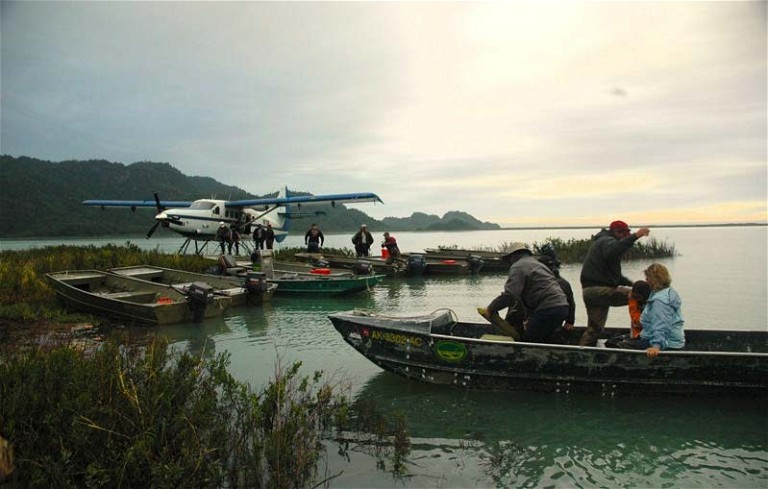
5 & 6) Finding the right guiding company allowed a fly-out trip to a remote lake in the Alaska Range that was loaded with sockeye salmon… and bears.
This all sounds more dangerous than it actually was, but the point is: do your best to stay out of trouble. An American mate once invited me to join a group to go and chase goliath tigerfish in the Democratic Republic of the Congo. He was a tough guy, an ex-special services veteran, but the DRC is one of the world’s more dangerous places and, wimp that I am, it took me all of two seconds to decline. When he got back, he emailed me that the group had only had one goliath bite between them in a week, and on one occasion they were shot at! Literally dodged a bullet there!